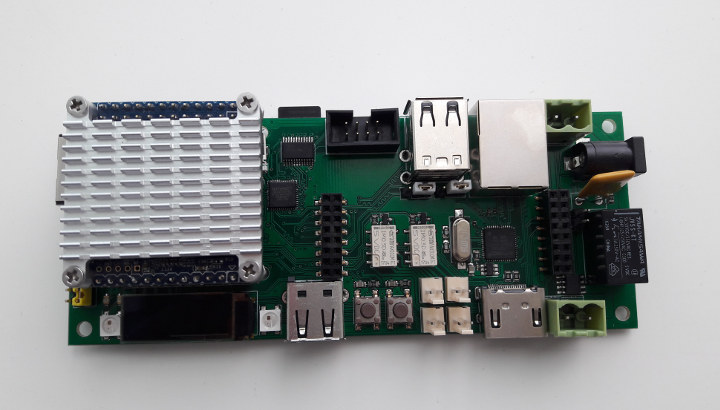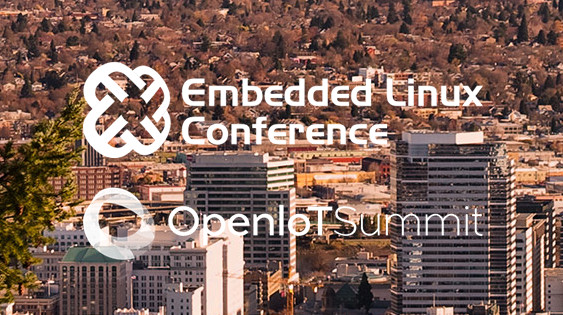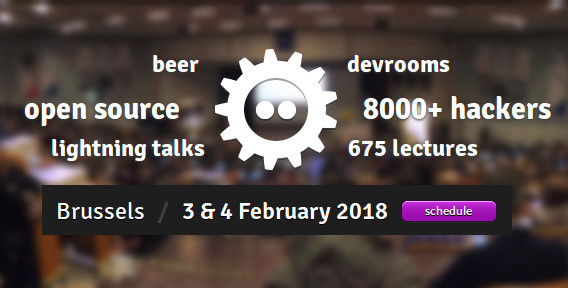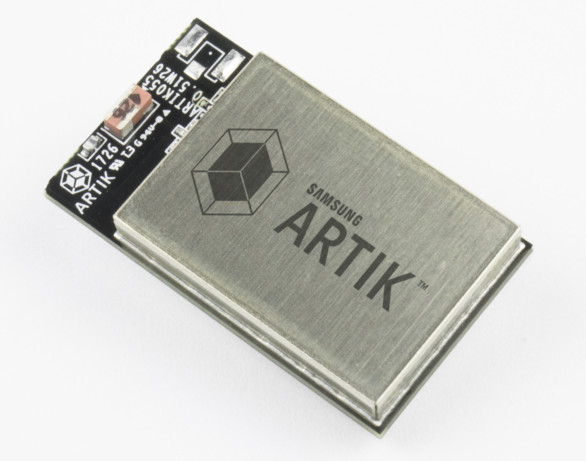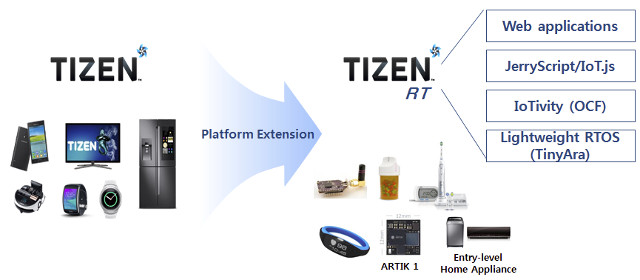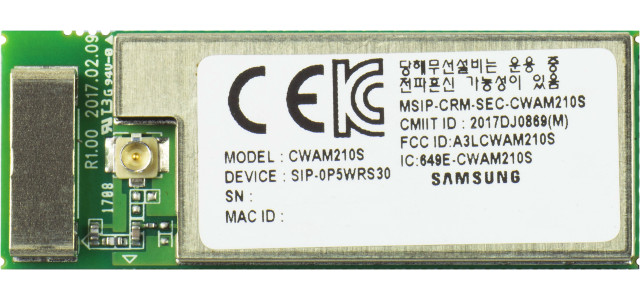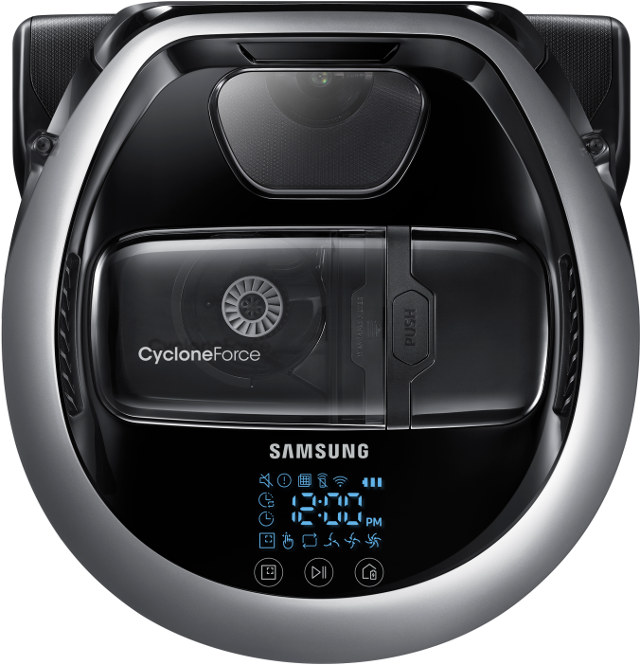Product development often occurs in different location over the world, there may be one team in Asia, and another in Europe and the US. At the beginning, the number of working samples for a board may be limited, so the project manager may have to decide who gets the boards since those may not be available to all teams. So it would be great if somehow there was a way to do remote testing of boards, so maybe the team in Asia could setup the testbed, used it during there time, and once they are back home, the US team can take over remotely to carry on their own development work on the hardware. That’s exactly what MuxPi board is all about. The solution provide remote access via the Ethernet port of a NanoPi NEO board, and connects to the DUT (Device under Test) via HDMI, Ethernet, USB and other […]
Embedded Linux Conference & IoT Summit 2018 Schedule
The Embedded Linux Conference 2018 and the OpenIoT Summit 2018 will jointly take place next month, on March 12 – 14, 2018 in Portland, Oregon, USA. The former is a “vendor-neutral technical conference for companies and developers using Linux in embedded products”, while the latter is a “technical conference for the developers and architects working on industrial IoT”. The Linux Foundation has already published the schedule, and it’s always useful to learn what will be discussed about even for people who won’t attend. With that in mind, here’s my own virtual schedule with some of the talks I find interesting / relevant to this blog. Monday, March 12 10:50 – 11:40 – Progress in the Embedded GPU Ecosystem by Robert Foss, Collabora Ltd. Ten years ago no one would have expected the embedded GPU ecosystem in Linux to be what it is now. Today, a large number of GPUs have […]
FOSDEM 2018 Open Source Developers Meeting Schedule
FOSDEM (Free and Open Source Software Developers’ European Meeting) occurs every year on the first week-end of February, where developers meet for two days discussing about open source software projects. FOSDEM 2018 will take place on February 3-4 this year with 652 speakers, 684 events, and 57 tracks, an increase over last year 608 speakers, 653 events, and 54 tracks. There will be 8 main tracks namely: Community, History, Miscellaneous, Performance, Python, Security and Encryption, Space, and Global Diversity CFP Day. There will also be 33 developer rooms, and since the full schedule is now available, I’ll make a virtual schedule mostly based on sessions from the Embedded, mobile, and automotive, Hardware Enablement, and Internet of Things devrooms. Saturday 3, 2018 09:50 – 10:15 – Turning On the Lights with Home Assistant and MQTT by Leon Anavi In this presentation you will learn the exact steps for using MQTT JSON […]
Samsung IoT Security News – ARTIK Secure IoT Modules, SmartThings Cloud, and Secure Element
Samsung has made several announcements with IoT, especially IoT security. First, Samsung ARTIK 053, ARTIK 530 and ARTIK 710 modules are getting an “s” version, which stands for “robust security”, as well as a new ARTIK 055s module, and all ARTIK modules can now work with SmartThings Cloud uniting the company’s existing services – ARTIK Cloud and Samsung Connect Cloud – into a single IoT platform. Separately, the company announced their Secure Element solution which combines eFlash memory and new security software. Samsung ARTIK “s” modules & ARTIK 055s The company explains in their blog that ARTIK 053s, 530s, 710s, and the all new 055s will feature “advanced protection, integrated cloud services, and hosted security services with “enhanced ARTIK end-to-end security by providing greater protection for IoT data as well as prevention against hacking”. The press release is a little more specific: ARTIK secure IoT modules provide a strong root […]
Tuxera FAT+ File System for Embedded Systems is Compatible with FAT32, Faster, and Supports Files up to 16TB
Tuxera has introduced FAT+, a new file system for removable storage on embedded systems that’s compatible with FAT32 but without the limitations such as the 4GB file size limit, and brings fail-safety and performance optimization. FAT+ is allegedly one of the recommended file systems by the Universal Flash Storage Association (UFSA) for the next-generation Universal Flash Storage (UFS) cards. Some of the key features of Tuxera FAT+ implementation include: Supported Operating Systems – Android, Linux, Chrome OS, Firefox OS, Tizen Hardware Architecture – ARM, ARM64, Intel x86/x86_64 or compatible, MIPS, MIPS64, PowerPC, SH4, and more Capacity Maximum volume size – 2 TiB with 512-byte sectors, 16 TiB with 4096-byte sectors Maximum allocation block size – sector size in bytes x 128 Maximum file size – 16 TiB Maximum filename length – 255 characters (16-bit) Supported sector sizes – 512, 1024, 2048, and 4096 bytes Interoperability Conforms to all Microsoft FAT […]
Samsung Unveils Tizen 4.0 with .NET Framework, Low End IoT Devices Support
We’ve already seen the announcement of Samsung ARTIK 053 WiFi module with Tizen RT this morning, but it appears that Tizen RT (Real Time) is part of a Tizen 4.0 that will add support to IoT devices, as well as introduce changes from the developers’ perspective. Samsung Electronics talked a bit more about Tizen Next (Tizen 4.0) at the Tizen Developer Conference (TDC) 2017 taking in place on May 16-17 in San Francisco. Few details are provided in the press released, but we could learn that “the Tizen 4.0 platform has been extended to Tizen RT (Real-Time) to involve high-end products such as TVs and mobile devices as well as low-end products such as thermostats, scales, bulbs, and more”. Tizen RT page explains that the real-time operating system is designed to run on Cortex M/R MCU with less than 2 MB RAM, less than 16 MB flash, and consists of […]
Samsung ARTIK 053 WiFi IoT Module Runs Tizen RT on an ARM Cortex R4 MCU
Samsung has just introduced the latest member of its Artik family at IoT World 2017. ARTIK 053 is a WiFi module powered by an ARM Cortex R4 wireless micro-controller @ 320 MHz with hardware based security, GPIO, SPI, and I2C ports, and running Tizen RT real-time operating system. Artik 053 module specifications: MCU – 32-bit ARM Cortex R4 @ 320MHz with 1280 KB RAM for general use, 128 KB RAM for global IPC data (likely Samsung Exynos i T200, or a variant without an ARM Cortex M0+ core) Storage – 8 MB flash Connectivity – 802.11 b/g/n WiFi @ 2.4 GHz Expansion – 29 dedicated GPIO ports, 2x SPI, 4x UART (2-pin), 4x ADC, 1x JTAG, 2x I2C Security – AES/DES/TDES, SHA-1/SHA-2, PKA (Public Key Accelerator), PRNG/DTRNG (Random Number Generators), Secure key storage, Physical Unclonable Function (PUF) Power Supply – 5 to 12VDC input voltage Dimensions – 40 x 15 x […]
Samsung Introduces IoT-Ready POWERbot VR7000 Robot Vacuum Cleaner Compatible with Amazon Echo
2017 is the year where the future starts. You’ll be wandering in your automated home or office where lights and heating system are fully handled by a gateway taking into account sensors values, and equipped with a CO2 level controlled ventilation systems, your eyes constantly looking at your phone, wearing neckband speakers likely connected to your Amazon Echo to let you know when it’s time to get up, eat, go to work, brush your teeth, and get back to bed again. All your life will be taken care of on your behalf by the Internet of Things, relieving you of the stress of taking routine daily decisions… Luckily, you’ll still be have an illusion of control thanks to your “IoT-ready” Samsung POWERbot VR7000 vacuum cleaner that can be controlled with your voice via that Echo thing, giving your life a purpose. Samsung Electronics’ latest POWERbot vacuum cleaner will be unveiled […]


